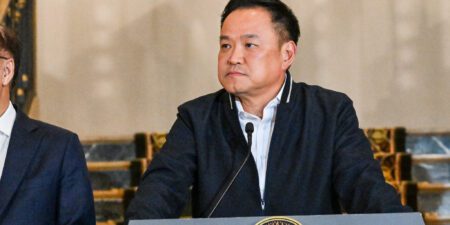
Bangladesh’s Hasina Government Toppled by Protests; Mohammad Yunus Named Chief Adviser of Interim Administration

BowerGroupAsia wrote an update to clients on Bangladesh’s recent political turmoil.
Context
- Bangladesh Prime Minister Sheikh Hasina resigned and fled the country August 5 following mass protests against her government. After 15 years of authoritarian rule, Hasina was forced to step down from office and flee the country as thousands of people marched toward Dhaka and seized control of the prime minister’s residence.
- Dr. Muhammad Yunus, who won the Nobel Prize in 2006 for founding the Grameen Bank, a microcredit organization for the poor, was announced chief adviser of the new interim government. The decision was taken in a meeting at the president’s house August 6, which was attended by President Mohammed Shahabuddin, the defense force chiefs and student coordinators. Shahabuddin dissolved Parliament that same day. An election will be held soon.
Significance
- The protests over a controversial job quota system started in July. University students began demonstrations following the reinstatement of a job quota scheme by the high court that mandates 30 percent government jobs for the descendants of the 1971 Liberation War veterans. Another 26 percent of jobs were reserved for women and other underprivileged groups, leaving only 44 percent government jobs for merit-based applicants. Instead of addressing the issue amicably, Hasina enraged the students by calling them “razakars” — a derogatory term used for people who collaborated with the Pakistani army during the Liberation War.
- Thousands of protesters held a rally in Dhaka August 3 and pressed their single demand that Hasina step down for the brutal killings during the student protests in July. More than 90 people were killed in violent clashes between protesters and members of the ruling Awami League along with law enforcement agencies over the weekend. The government imposed a curfew, deployed a large number of police and military across the country and commanded them to shoot on sight to restore order. However, thousands of people marched toward Dhaka August 5, defying the curfew. Realizing that her time was up, Hasina resigned and left for New Delhi in a military helicopter at around 2:00 p.m. local time.
- The Supreme Court repealed the job quota scheme July 21, leaving 93 percent government jobs for merit-based applicants and only 7 percent for the family members of veterans of Liberation War and other disadvantaged groups. But the move was too late; by then, the demonstration had evolved into a nationwide uprising as protesters sought accountability for the killings.
Implications
- The brutal crackdown has shaken the nation. A population that was previously quiescent has been roused, and the opposition forces, which had been struggling to mount any challenge to the ruling party, have been invigorated. Most importantly, Bangladesh students, who played an important role in almost every successful political movement in the country’s history, have become politically active in response to the regime’s ruthless response. People from all walks of life joined the students to ensure Hasina’s downfall.
- The Bangladesh Garment Manufacturers and Exporters Association held a meeting August 6 and decided not to reopen factories on August 7, considering buyers’ lead time. It is not clear when factories will reopen because law and order in the country remains unstable due to a shortage of security forces. The curfew in Dhaka has been at least partially lifted, and international flights in and out of Bangladesh that were shut down for part of a day have now resumed. Government decision-making will be delayed at least until an interim government is set up and officials have been appointed.
We will continue to keep you updated on developments in Myanmar as they occur. If you have any questions or comments, please contact BGA Head of Research Murray Hiebert at mhiebert@bowergroupasia.com.
Best regards, BowerGroupAsia

BowerGroupAsia
×























